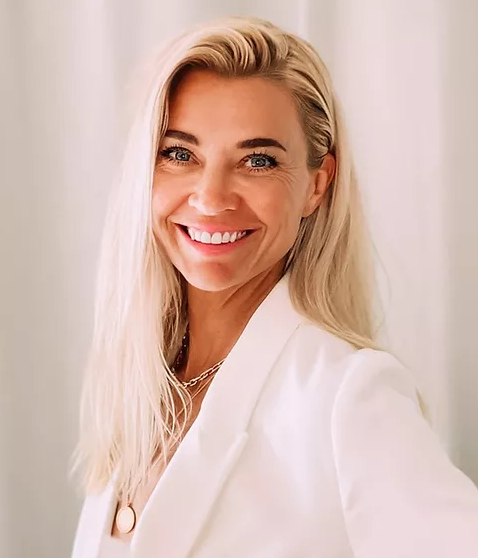
On my request, my mom looked at my vagina, and my veterinarian husband told me how he’d handle me if I were a cat. That’s what saved me two days after coming home from the hospital, just having given birth to our first baby.
Mom: “It looks beautiful, but there’s a big bruise, like the baby’s head was pushing really hard for a really long time.”
Husband: “You’ve been constipated since delivery. If you were a cat, I’d give you an enema.”
That hematoma, coupled with constipation, were causing such severe pain that I couldn’t move around. This, even though I’d just experienced vaginal labor and delivery, unmedicated.
I thought I’d done everything right.
The Bradley birth classes every Sunday, eating copious avocado, walking around the block, even writing a birth “vision” when doctors told me birth “plans” were dismissed as obnoxious hyper-vigilance on the part of naive first-time moms. I had an informed opinion on cord blood banking, and my newborn had even crawled up my chest to breastfeed on his own. Yet there I lay, flat on my stomach, unable to sit on my bottom, nursing our newborn in a side-lying position, trying to puzzle out where I’d gone wrong. No other mom I knew had ever described this kind of pain and difficulty after returning home from the hospital… so it must be unique to me, right?
The lovely Mr. (Fred) Rogers is quoted as saying:
Anything that’s human is mentionable, and anything that is mentionable can be more manageable. When we can talk about our feelings, they become less overwhelming, less upsetting, and less scary. The people we trust with that important talk can help us know that we are not alone.
When I gave birth in 2012, the untidy, inconvenient parts of new motherhood were largely unmentioned, both in my close circles and in the public. Pregnancy, childbirth, and infant care were readily discussed. A woman’s physical, mental, relational and professional adjustments? Not really.
For me, I didn’t know how to manage it. The blood, the bruises, the constipation, the sudden hormone dump, the night sweats, the anger at my partner who slept peacefully through night feedings, the resistance to “leaning in” to work — I wasn’t prepared for any of it. And I took that to mean I was failing, flawed, and wrong.
It was in those moments that the notion for what later became Totum was born. Totum means “whole” in Latin. In those raw first months of motherhood, when I felt scattered into bits, torn between the woman I’d known for 33 years and the new woman I’d encountered after giving birth, I felt anything but “totum.”
I wanted to share my experience with other mothers.
I wanted to write a guide to postpartum that included graphic firsthand experiences and practical advice from practitioners, healers, and physicians.
But more than anything, I wanted to mention early motherhood — because I wanted other women to be able to better manage.
Thankfully, in the years since 2012, the cultural conversation and support surrounding new mothers has increased. There’s even a word for that discombobulating transition from maiden to mother: matrescence.
And I’m so grateful for it.
But in a world where Frida Mom was banned from depicting a postpartum woman getting up from bed to use the bathroom in a commercial during the Oscars, where Meta censors images of birth and breastfeeding from Facebook and Instagram, where the US shows a continued rise in maternal deaths (many of which occur in the first year after childbirth), and in a country where we still offer zero paid federal leave to new families, we still have a long way to go.
What if the truth of a woman’s experience in early motherhood were instead acknowledged openly as a center of our creative power as women? Imagine a world where our bodies and their seasons and capabilities were celebrated.
At Totum, we believe being whole as a modern mother requires examining what’s shifting and how, paired with support related to our minds, bodies, ambitions, and relationships. We deeply believe that we have to support one another by speaking up, sharing our experiences, and swapping resources.
While we’ve evolved as a brand, from offering products and services focused on the first tender year of motherhood, to supporting mothers at all stages — particularly at the intersection of ambition and motherhood — our mission has remained the same. We’re for modern mothers to live whole, supported lives.
We believe it begins with speaking up and sharing our experiences. If you feel it, mention it — because it matters. And together, we will make it manageable.
Erin Erenberg is a mom of three, attorney, serial business builder, fund advisor, and the founder and CEO of Totum, an advocacy firm for modern mothers at the intersection of ambition and motherhood. She is also a co-founder of the Chamber of Mothers and serves on the Equitable Business Council for Have Her Back. Before launching Totum, Erin practiced as an IP attorney for Moore & VanAllen and SESAC, served as the Executive Director of ACM Lifting Lives, ran business development for social impact-driven tech firms Indiegogo and Omaze, and worked as an agent for William Morris Endeavor.


